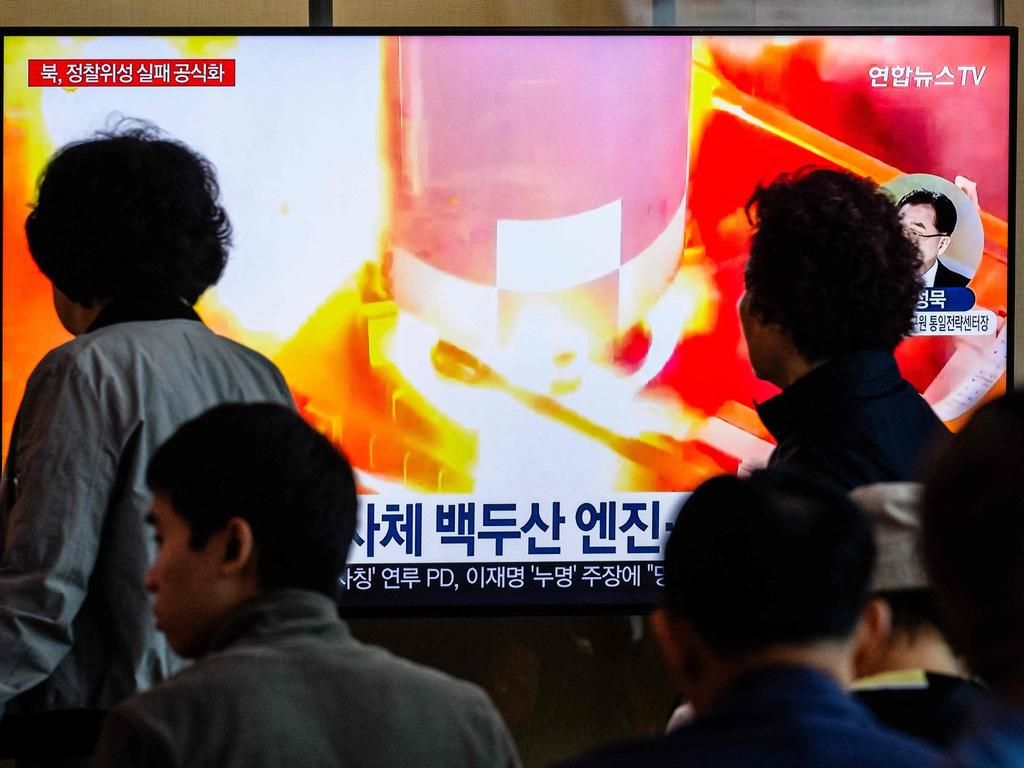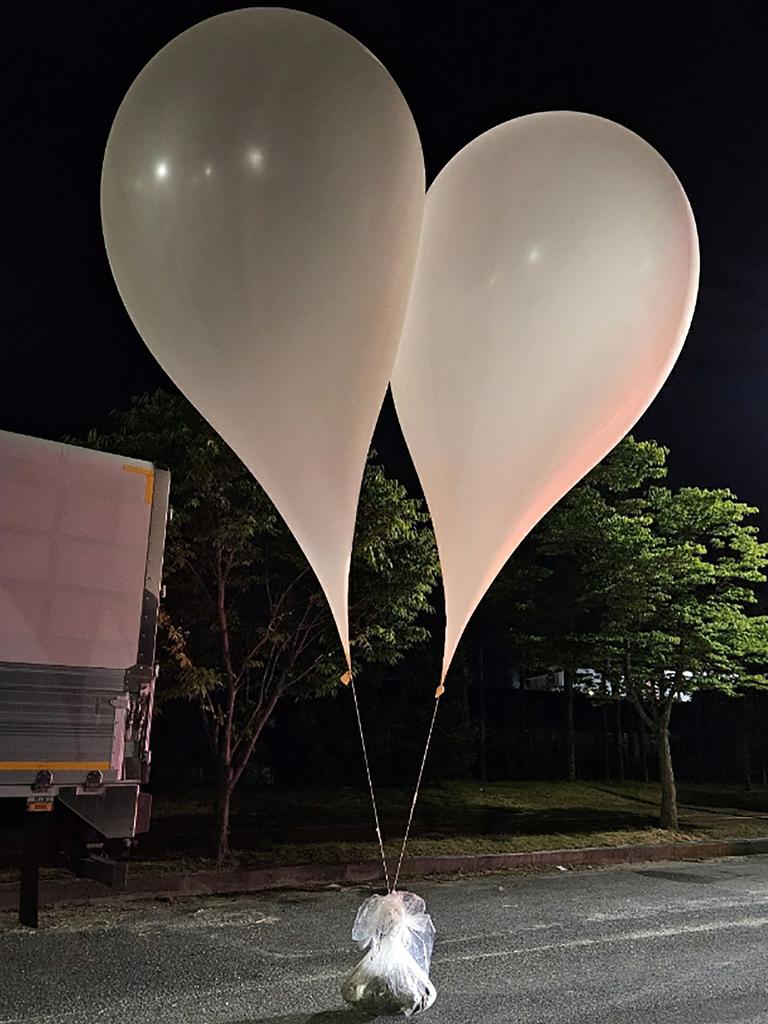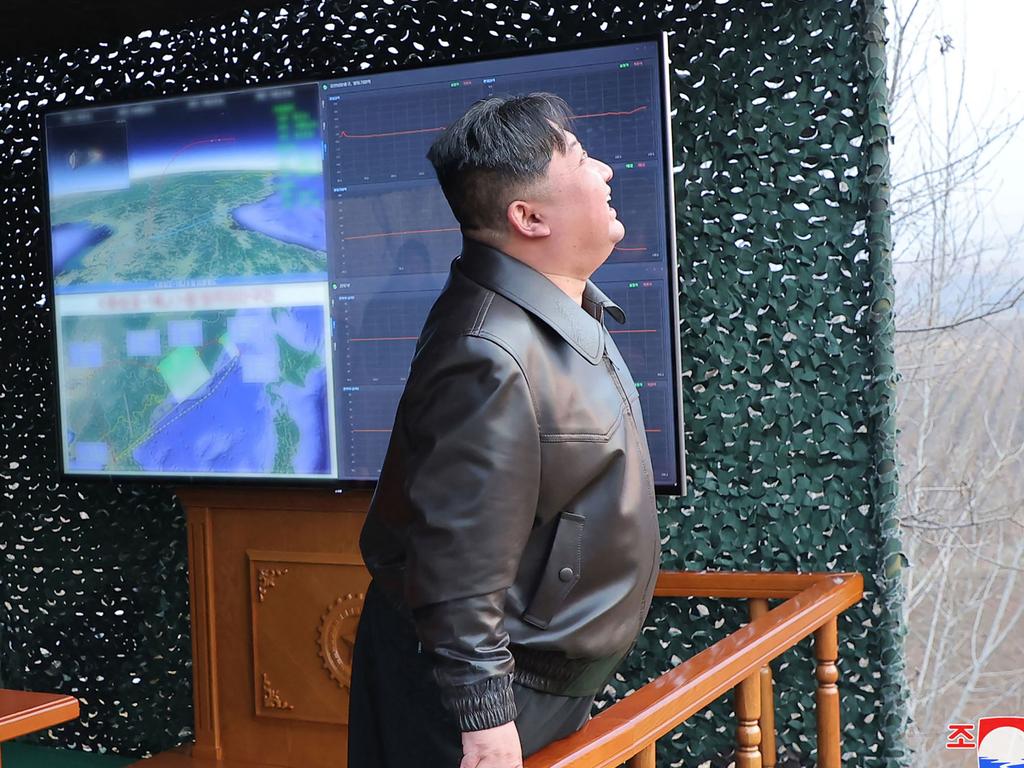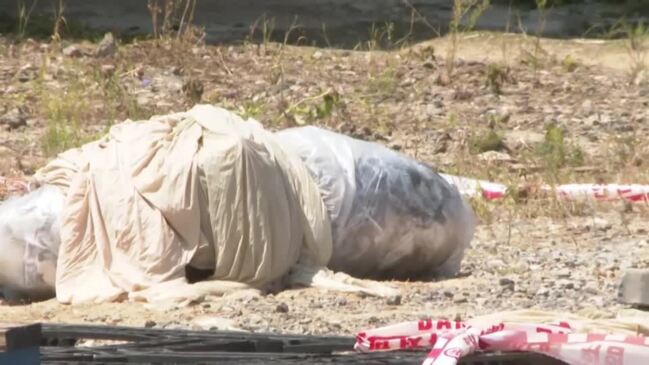Pyongyang’s new low in ongoing hostilities with Seoul really pongs
North Korea’s latest retaliation against South Korea is not very neighbourly, with the totalitarian state escalating border tensions by sending balloons filled with poo into a South Korean province

READING LEVEL: GREEN
When North Korea’s Supreme Leader* Kim Jong-un got angry, he used to fire a ballistic* missile or two but now he’s doing the mature thing and throwing poo at South Korea instead.
It’s been a tense few days in Pyongyang* ever since North Korea’s much hyped* new spy satellite, intended to keep an eye on South Korea and the US, blew up shortly after launch on Tuesday.
Meanwhile, South Koreans – including defectors* from the north – have been sending balloons carrying USB sticks loaded up with K-Pop*, money, food, medicine and anti-North Korean leaflets across the border.

In retaliation, North Korea sent some balloons of its own on Wednesday carrying vast amounts of foul-smelling faeces*.
Seoul’s military confirmed to AFP the balloons had landed with one province*, issuing an alert asking residents to stay indoors.
“Citizens should refrain from outdoor activities, do not come into contact with any unknown objects, and report them to the nearest military base or police,” it said in a statement.
Late Tuesday night, Gyeonggi province issued a text message alert to residents.
“Refrain* from outdoor activities and report (objects from North Korea) to military bases when identified,” it said in the message.

Since the 1950-53 Korean War ended in an armistice*, the two Koreas remain technically at war and are separated by a heavily fortified* border including the Demilitarised Zone* (DMZ).
On Sunday, North Korea had warned it would retaliate* in a statement carried by the official Korean Central News Agency.
“Tit-for-tat action will be also taken against frequent scattering of leaflets and other rubbish by the ROK* near border areas,” Kim Kang Il, a vice minister of defence, said in the statement, using the acronym* for South Korea’s official name.

“Mounds of wastepaper and filth will soon be scattered over the border areas and the interior of the ROK and it will directly experience how much effort is required to remove them,” Mr Kim said.
North Korea has sent propaganda* balloons across the border before, in 2016 for example, but their approach is a bit different this time, Sejong Institute’s Dr Cheong Seong-chang told AFP.
“Bags filled with toilet paper, trash and Chinese batteries were found,” he said.
“Also from witness statements that there was a ‘distinctive smell’ from the bag, it is likely they sent faeces, probably animal faeces, as well,” he added.

Local media reports carried photographs purportedly* showing balloons carrying bags of what appeared to be animal excrement*.
“It’s a stern message to South Korea that like the South, North Korea can send propaganda as well, and they should immediately stop doing it,” Dr Cheong said.
He added, “The border will be strongly controlled after this.”
WATCH THE VIDEO

POLL
GLOSSARY
- Supreme Leader: ruler in control of a group or country
- ballistic: weapon designed to deliver an explosive warhead with great accuracy at high speed
- Pyongyang: capital of the Democratic People’s Republic of Korea, known as North Korea
- hyped: promoted, praised, advertised, publicised
- defectors: someone who leaves a country, political party, especially in order to join an opposing one
- K-Pop: Korean pop music
- faeces: the solid waste passed out of the body of a human or animal through the bowels, poop
- province: a territory governed as a unit of a country or empire
- refrain: hold back, not do something, resist, stop oneself
- armistice: an agreement between countries who are at war with one another to stop fighting
- fortified: when something is strengthened
- Demilitarised Zone: an area from which weapons and military forces have been removed
- retaliate: fight back, reply, reciprocate, react
- tit-for-tat: where someone takes revenge on another person for what they have done by doing something similar to them
- ROK: Republic of Korea, known as South Korea
- acronym: an abbreviation using the first letters of each word in the name of something, pronounced as a word, like WHO is the acronym of the World Health Organisation
- propaganda: information, ideas or rumours deliberately spread widely to help or harm a person, group, movement, institution or nation
- purportedly: supposedly, reportedly, allegedly, reputedly
- excrement: waste from the bowels, faeces, stools, poo
EXTRA READING
Tween girl could rule North Korea
Korea farewells its firstborn panda
North Korea peace promise makes history
QUICK QUIZ
- Why has it been a tense few days in Pyongyang?
- What have South Koreans been sending in balloons to North Korea?
- How are the two countries separated and what does it include?
- When was the Korean War?
- What has been the “tit-for-tat” response from North Korea to the balloon drops from South Korea?
LISTEN TO THIS STORY
CLASSROOM ACTIVITIES
1. What is their problem?
Why do you think North Korea doesn’t want South Koreans to send K-
Pop, food, money and medicine to them? Use information from the story to write your answer to this question.
Time: allow at least 10 minutes to complete this activity
Curriculum Links: English, History
2. Extension
Did you know that around 17,000 Australians served in the Korean War between 1950-53? Use your research skills to find out more about the battles and the experiences of Australians who served in Korea. Use the information that you have found to write or create a special ceremony for your school. The purpose of your ceremony is to help other kids understand the war and the service of the Australians who were there.
Time: allow at least 60 minutes to complete this activity
Curriculum Links: English, History
VCOP ACTIVITY
Read with Kung Fu punctuation
Pair up with the article between you and stand up to make it easy to demonstrate your Kung Fu punctuation.
Practise reading one sentence at a time. Now read it again, while acting out the punctuation as you read.
Read and act three sentences before swapping with your partner.
Take two turns each.
Now ask your partner to read a sentence out loud while you try and act out the punctuation. Can you keep up? Swap over?
Try acting out two sentences – are you laughing yet?

